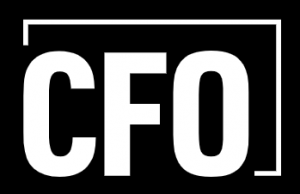CFOs: The Architects of Enterprise Transformation
CFOs need to be part strategists, part change champions, and part value-creating tacticians to lead enterprise-wide transformation.
Nick Leopard, CEO & Founder, Accordion & Junaid Samnani, Co-Head of Transformation, Accordion

The CFO’s role is critical to transformation acceleration and success, and yet the CFO has not been a central character in that effort to date. Sure, some CFOs may have been charged with owning the digitally-enabled overhaul of the finance department (on top of their already ambitious day jobs). But even that domain is too narrow. CFOs must not only own finance transformation; they must use their unique position to architect all enterprise-wide transformation from their office.
That means leveraging the abundant data available to, and nurtured by, the CFO’s office to identify pockets of value across the enterprise. It means more rigorous analysis beyond value identification — understanding project scope, the actual size of the prize, cost, time to value, and establishment of the execution path.
But what it really means is developing, prioritizing, and driving the execution of a series of organizational projects that help improve EBITDA and increase valuation. That is the true transformational role and opportunity for private-equity-backed and other CFOs. To play that role effectively, CFOs must wear three hats.
1. Systemic Strategist
A few years ago, we argued in this very publication that among the deadliest of “sins” any CFO (and particularly a PE-backed CFO) could commit would be just keeping the books. A controller-style finance department, we said, lacks the ability and strategic sensibility to help scale the business. We stand by that, but now it’s more. Now it’s not just about the CFO embracing the evolution of their role from scorekeeper to business partner to transformation architect; it’s about leveraging data and disruptive technologies to execute against that role. That data isn’t just financial metrics; it includes all the financial and operational numbers which CFOs can uniquely analyze and contextualize.
Moreover, those disruptive technologies go far beyond substituting Excel with a more modern ERP or customer relationship management system. Those are table stakes. We’re talking about technologies that don’t just improve but transform: Technologies that enable the business to function better (efficiency) and run smarter (efficacy), such as those that would inform pricing strategies.
We’re also talking about technologies that help pull costs from the organization by automation of manual tasks. These technologies dramatically reduce unnecessary headcounts for cost efficiency and convert systemic team and talent priorities. Indeed, when you eliminate the bulk of manual process requirements in an organization, you can focus on recruiting, hiring, and employing talent who can help develop and execute against broader corporate or divisional goals. When the CFO embraces his or her role as a transformational architect — when they leverage data to identify value and deploy disruptive technology to execute against it — they also take the organization’s broader talent population along on that more strategic journey.
2. Change Champion
Being an architect of enterprise transformation means being a change agent who can build and incentivize a cross-functional network of support. To be effective change champions, the CFO must do three things really well.
First, they must appropriately align incentives to transformation. The effective transformational CFO understands that paying incrementally more — bonuses aligned to program achievement — motivates team members to help “own” the journey and pull it along through to completion and success.
Second, they must find, identify, and empower other change agents. Too often, it is the capable project manager that is tapped to lead individual transformational initiatives. While every project needs someone adept at bringing together various elements and ensuring progress timelines are being met and addressed, transformation initiatives demand something more. They demand program leaders who are extensions of the executive team, not just project managers. They demand leaders who can articulate the goals of the campaign, who can gather support, who can handle front-line communication, who can ensure all cross-functional voices are heard, and who can find a way to work with the business to get to “yes,” instead of just cataloging the “no’s.”
Sometimes, these change agents exist within the organization, but often, they don’t. An effective transformational CFO must be willing to break traditional protocol by looking for a partner outside of the organization to lead an initiative or by looking at less tenured, perhaps even less experienced, talent within the enterprise who have the requisite skillset to lead transformation-type enterprise events. These change agents will similarly look for best-of-breed support teams instead of reflexively turning to the typical internal talent or traditional consulting agency. It is this network of players who can collectively address the roadblocks that would otherwise delay teams following more traditional playbooks.
Third, to be an effective change champion, CFOs must manage down and up. They must not only build the best support teams, but they must also understand the importance of ensuring the board is proactively briefed on return on investment expectations, investments spent, and progress milestones.
3. Tactical Technician
Ultimately, for CFOs to be true architects of enterprise transformation, they must understand all the tangible levers to pull for value realization and when to pull them. Here, we discuss value-creation levers on the revenue side: SKU profitability and rationalization, pricing strategy and considerations, effective channel management, sales & operations planning model, and process reengineering.
We’re also talking about cost reduction levers in the form of operating model review (digital worker, share services center, BPO), direct and indirect cost pool review, including finance process reengineering (close acceleration, reporting enhancement), and operations reengineering (production, supply chain, logistics), and tech-enabling levers (RPA, CPM, BI).
Transformational levers would also include a review of cash and liquidity enhancement to drive working capital improvement.
But, the effective transformational CFO doesn’t just bless the lever-pulling strategy, he or she is engaged in program progress. That means the CFO must find the delicate balance between being in the weeds and being meaningfully involved in tracking project value, understanding achievements and obstacles, and holding team members accountable for reaching the former and navigating the latter.
Transformation has become the new enterprise gateway to value stabilization and value creation. CFOs can’t just man that gate; they must design it, build it, support it, and lead people through it to execution. To do so effectively and be true architects of enterprise transformation, CFOs will have to be part strategists, part change champions, and part value-creating tacticians. In the PE-backed environment, add sponsor whisperer and board manager to the intimidating list.



